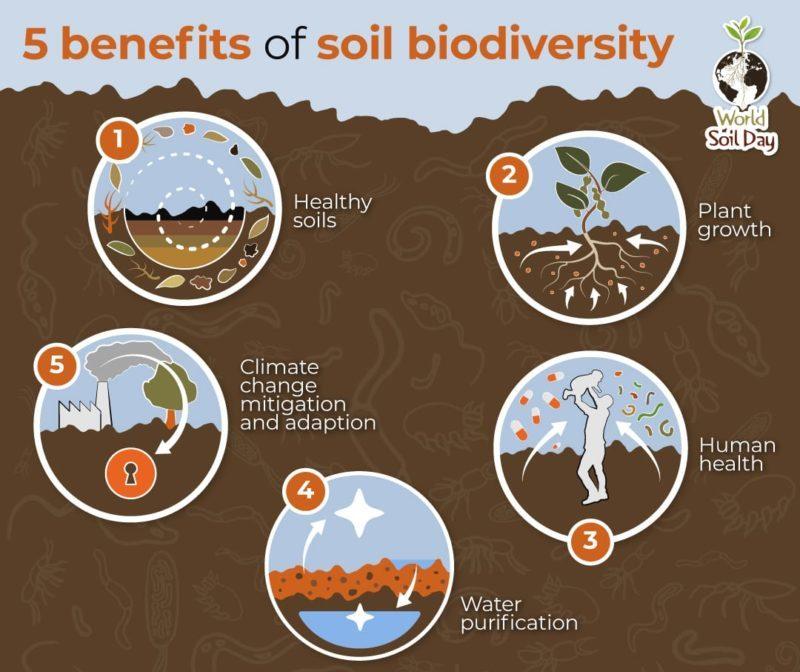Celebrate World Soil Day!

photo courtesy of Food and Agriculture Organization of the United Nations
Agriculture is Haiti’s main industry and makes up over 60% of the workforce nationwide. However, food production can be quite challenging for many farmers in Haiti due to heavily degraded soils as a result of exploitative production like deforestation and over-intensive agricultural practices during the colonial era. Before farmers are able to support the growth of bountiful harvests or reforestation initiatives, degraded soils need to be restored and brought back to a natural balance. Maintaining soil health and biodiversity is critical to establishing resilient ecosystems that can support plants and people. We celebrate World Soil Day this week in recognition of the incredible benefits that the “dirt” beneath our feet provides. This year’s UN World Soil Day is centered on: “Keep soil alive, protect soil diversity,“ to raise awareness for the importance of maintaining the balance between healthy ecosystems and human well-being for sustainable futures (Food and Agriculture Organization of the UN).
World Soil Day is particularly relevant to us at SOIL and Haiti. Compounding challenges of national debt, natural disasters, poor land management and poverty have left Haiti’s environment depleted and deforested, with “erosion affecting over half of Haiti’s territory.” According to USAID:
“Widespread deforestation is a critical concern in Haiti and poses a serious threat to the lives of Haitian citizens. This deforestation has led to flooding, dramatic rates of soil erosion, and subsequent declines in agricultural productivity. Haiti’s valuable coastal and marine resources have been degraded by sediment deposit and overfishing, resulting in considerable loss in biodiversity."
SOIL’s work to support healthy ecosystems and soil health is helping to push the conversation around waste to resources for sustainable futures. Our organic compost, produced from safely treated human waste makes its way back to the soil to support critically needed biodiversity efforts. SOIL’s regenerative solution is designed to support soil health through the transformative process of recapturing nutrients from human waste, transforming it into an agricultural grade compost from the waste treatment process, and using the compost to revive depleted soils. SOIL’s compost is sold to local farmers and other stakeholders in the ag sector to help grow food and support agricultural production, from urban farm initiatives to reforestation projects. Every bag of compost we produce is a step towards a greener, more resilient future for Haiti.